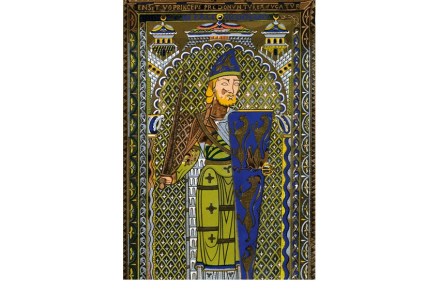A beautiful bloody world
The half-millennium or so that followed the division of the Carolingian empire in 843 AD was a time of profound social and political change in Europe. Kingdoms were established, new forms of law and theories of power were developed and military technology and tactics were revolutionised. Relations between church and state were transformed. The emerging European states developed new cultural identities, while western Christendom as a whole also began to define and assert itself against the Islamic states in the Middle East and north Africa, and the ailing remnants of the Byzantine empire to the east. By the middle of the 15th century, the various kingdoms of Europe were strong,











